Louisiana Texas Bald Cypress Swamps#
Photos by Dmitry Moiseenko, member of the AirPano Team that is a member of the global-geography Consortium.17 July 2019
with kind permission of AirPano
In the Cupressaceae family, there is a conifer tree named Taxodium, or Bald cypress. Initially. this species originated in the North American continent but eventually was brought to Europe in the 17th century.
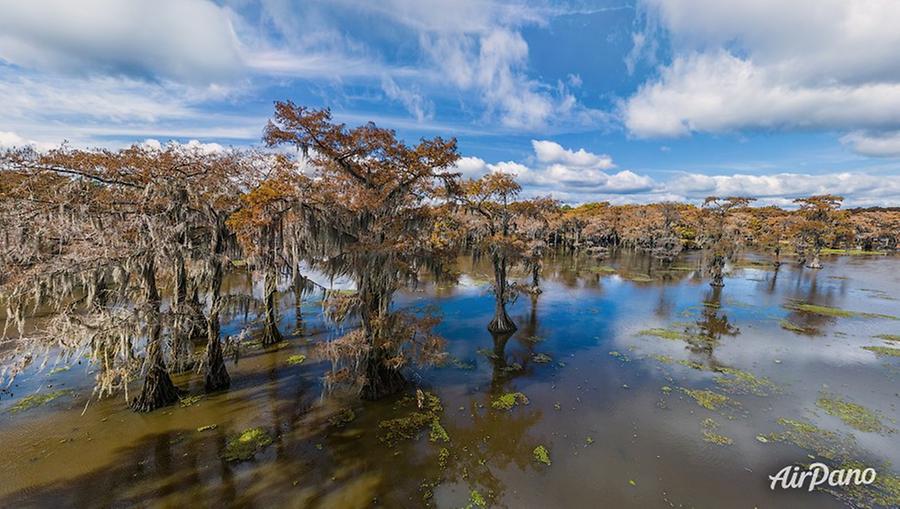
© AirPano
Taxodium is extremely tolerant of humid areas, such as coasts and swamps. It does not need much light, but it is very dependent on warmth. Another key factor for this tree is the precipitation amount. Its dense wood is highly rot-resistant and Taxodium is so much addicted to water that it can grow in the conditions that any other terrestrial plant cannot bear. In 2012, divers found an entire underwater cypress grove in Alabama, US. The trees felt quite good under 18 meters of water.
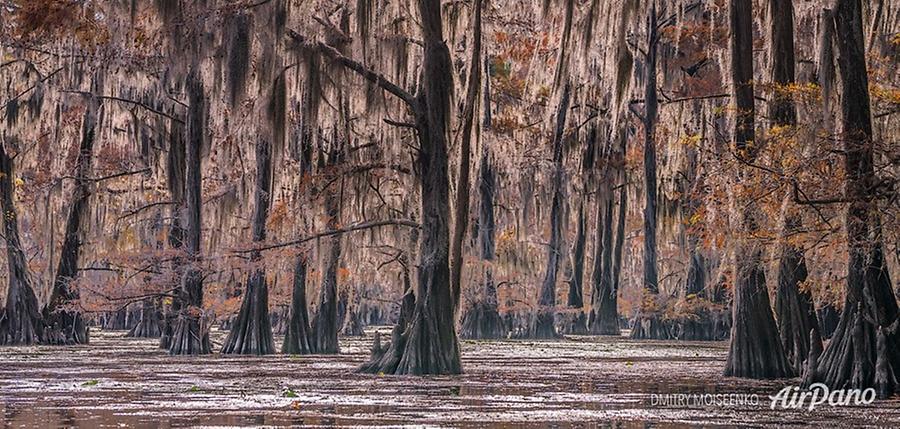
© AirPano
During the first five years of its life, Taxodium grows up to 3 meters high, then at the age of 40 it reaches 21 meters and a 100 years old tree is around 36 meters high. In a hundred years, the growth ceases, the tree does not change its size and can live up to 1,000 years.

© AirPano
Taxodium has a rather unusual trunk, it is wide at the bottom and thin at the top. The dark or maroon tree bark is covered by deep longitudinal cracks. The horizontally radiating roots form peculiar growths of conical shape that rise above water at 1-2 meters. This kind of "knees" allow the tree to take hold in the unstable humid ground.
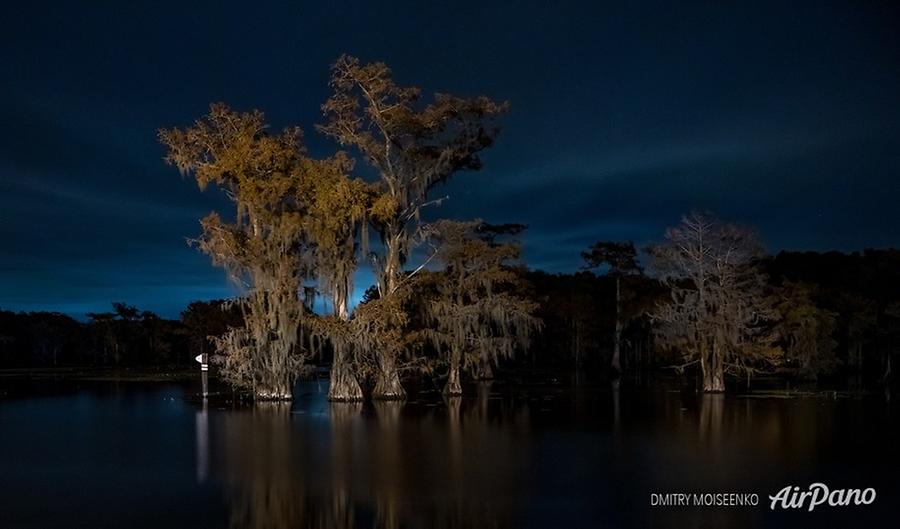
© AirPano
By the beginning of the 20th century, the number of Taxodium had significantly decreased due to massive cutting down aimed for durable wood. Fortunately, people understood the importance of these unique trees and their impact on the swamp ecosystem. Now Taxodium groves can be met in many humid and warm corners of the world.
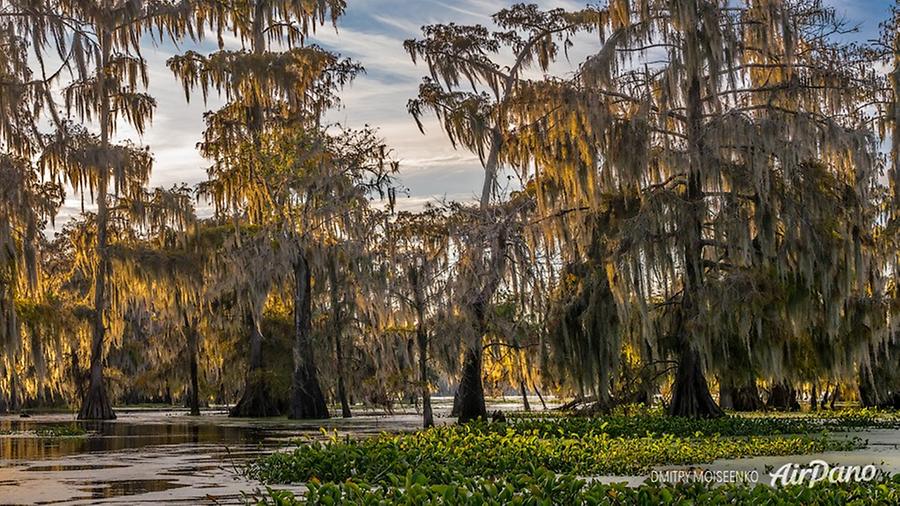
© AirPano
Just imagine how impressive these forests look like! The largest Taxodium grove found itself on swamps on the border between Texas and Louisiana. Cypresses that are beautiful on their own are additionally adorned by Tillandsia usneoides. The native Indians called this flowering plant Spanish moss, as it resembled the beards of conquistadors.
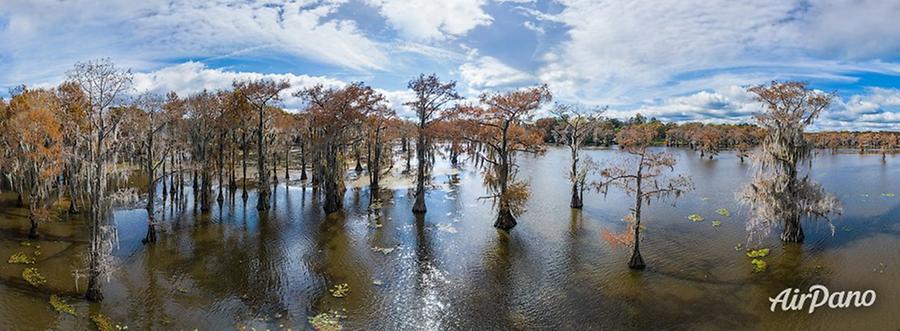
© AirPano
The water in this lake is crystal clear with alligators inhabiting it. The banks of the lake are the habitat of different animals and birds. Let's have a journey to this fantastic forests through the AirPano virtual tour.
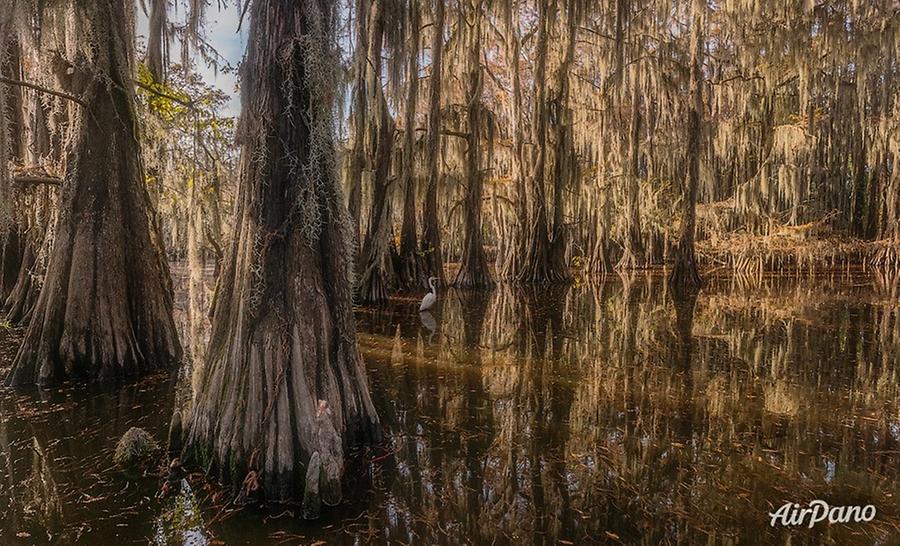
© AirPano
16 panoramas of Louisiana Texa Bald Cypress Swamps